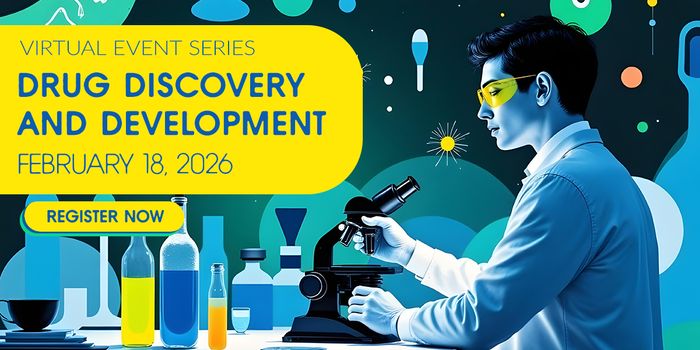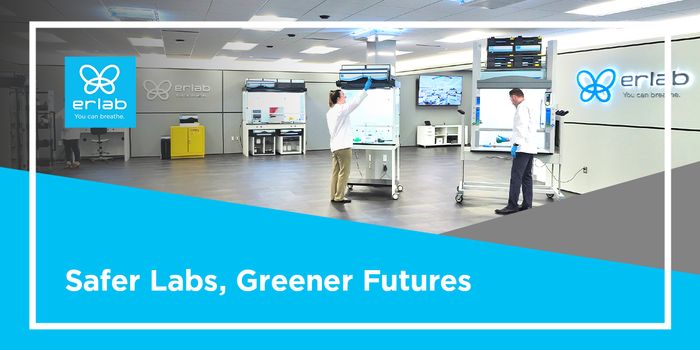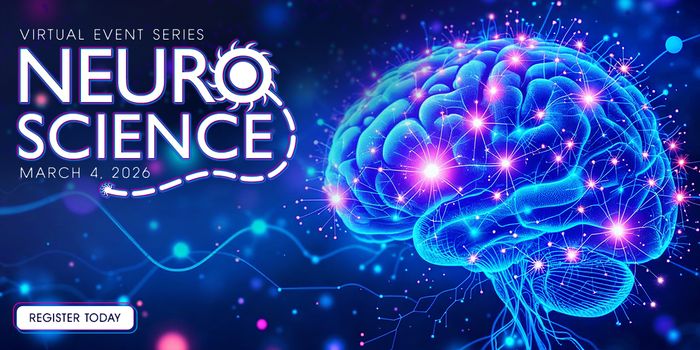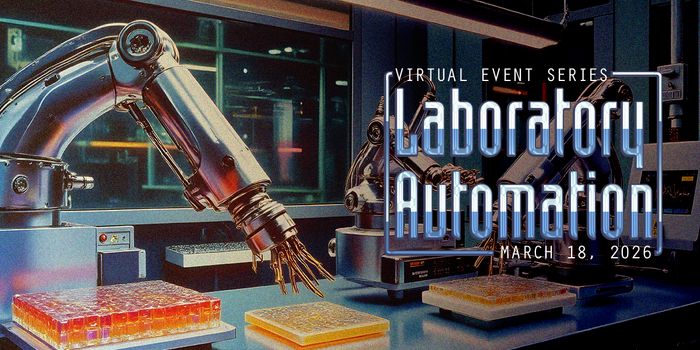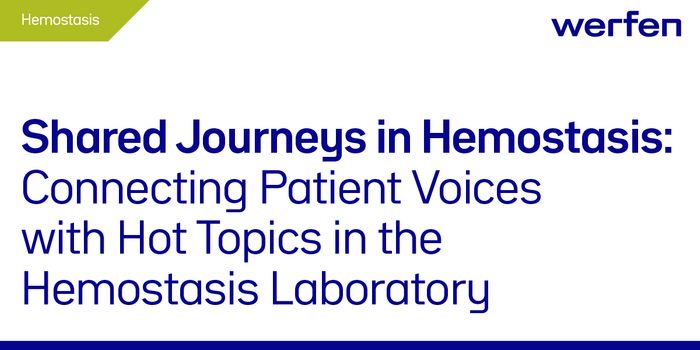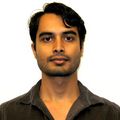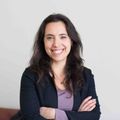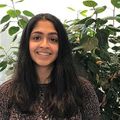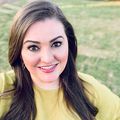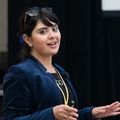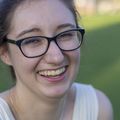2020 Beckman Symposium
The Beckman Symposium is a three-day event where Arnold and Mabel Beckman Foundation program awardees present their newest research findings as poster or oral presentations. Attendees are given opportunities to network, learn about a broad range of research topics from their peers, and discuss career tips with invited experts from academia, industry, and medicine.
Due to COVID-19 concerns, this year’s event is being presented in a virtual space. The agenda for our first-ever virtual Symposium has been carefully composed to feature a combination of live webinars and pre-recorded content that showcases our Beckman Young Investigators, Arnold O. Beckman Postdoctoral Fellows, Beckman Scholars and Cryo-EM Instrumentation Grantees, along with a research poster hall, program booths, Q+A chats and networking lounge. (And don’t forget to explore every aspect of the event to accumulate points for a chance to win prizes.)
The newest additions to our Beckman Symposium guest list represent local high school science students from the CubeSat program and the inaugural year awardees and mentors of our Orange County Beckman Legacy Program. To all attendees: This space was developed to promote sharing of scientific knowledge and to foster collaboration. As a friendly reminder: The Arnold and Mabel Beckman Foundation is committed to providing a safe, productive and welcoming environment for Symposium guests. All participants are expected to abide by the Code of Conduct when spending time online with other Foundation awardees, colleagues in your field, distinguished scientists from across the United States, and other guests of the Foundation. The guidelines are intended to ensure that all participants have a pleasant and productive virtual event, free from disruptions.
We hope you enjoy the 2020 Beckman Symposium!
- To see a slideshow video recap of last year’s Symposium, see video below.
- Follow us on social media using these handles and event hashtag:
- Twitter: @beckmanfnd
- Facebook and Instagram: @beckmanfoundation
- LinkedIn: @arnold-and-mabel-beckman-foundation
- #BeckmanSymposium
Speakers Share
-
Marco Allodi, PhD
Arnold O. Beckman Postdoctoral Fellow, University of Chicago
BIOGRAPHY
-
Kumar Ashtekar, PhD
Postdoctoral Fellow, Yale School of Medicine
BIOGRAPHY
-
Jesse Isaacman-Beck, PhD
Postdoctoral Fellow, Stanford University
BIOGRAPHY
-
Jonathon Bower
Student
BIOGRAPHY
-
Gabriela Schlau-Cohen, PhD
Associate Professor of Chemistry, Massachusetts Institution of Technology
BIOGRAPHY
-
Sarina Doshi
Student
BIOGRAPHY
-
Carmen Drahl, PhD
Freelance Science Journalist
BIOGRAPHY
-
Christopher am Ende, PhD
Associate Research Fellow, Pfizer, Inc.
BIOGRAPHY
-
Yiyang Gong, PhD
Assistant Professor, Departments of Biomedical Engineering, Electrical & Computer Engineering, and Neurobiology, Duke University
BIOGRAPHY
-
Ming Chen Hammond, PhD
Associate Professor of Chemistry, University of Utah
BIOGRAPHY
-
Jennifer M. Heemstra, PhD
Associate Professor of Chemistry, Emory University
BIOGRAPHY
-
Eric Ho
Student
BIOGRAPHY
-
Anne Hultgren, PhD
Executive Director, Arnold and Mabel Beckman Foundation
BIOGRAPHY
-
Kaylee Kim
Student
BIOGRAPHY
-
Terrance T. Kummer, MD, PhD
Director of Neurotrauma ICU, Barnes Jewish Hospital, Assistant Professor of Neurology, Washington University School of Medicine
BIOGRAPHY
-
Markita Landry, PhD
Assistant Professor of Chemical and Biomolecular Engineering, University of California, Berkeley
BIOGRAPHY
-
Chen Li, PhD
Assistant Professor of Mechanical Engineering, Johns Hopkins University
BIOGRAPHY
-
Francisco Luongo, PhD
Postdoctoral Fellow, California Institute of Technology
BIOGRAPHY
-
Vennela Mannava
Undergraduate Student, University of Chicago
BIOGRAPHY
-
William H. May
Chairman of the Board of Directors, Arnold and Mabel Beckman Foundation
BIOGRAPHY
-
Bri McWhorter, MFA
Founder & CEO of Activate of Captivate
BIOGRAPHY
-
Silas Miller
Undergraduate Research Assistant, Whitman College
BIOGRAPHY
-
Jeffrey S. Moore, PhD
Beckman Institute Director, University of Illinois, Urbana-Champaign, Stanley O. Ikenberry Endowed Chair, Professor of Chemistry and Materials Science and Engineering, HHMI Professor
BIOGRAPHY
-
Mike Morrison
User Experience Designer, Graduate Student, Michigan State University
BIOGRAPHY
-
Kira Mosher, PhD
Postdoctoral Fellow, University of California, Berkeley
BIOGRAPHY
-
Freddy Nguyen, MD, PhD
Pathology Resident, Mount Sinai Hospital, Research Fellow, Massachusetts Institute of Technology, Co-Director of MIT COVID-19 Challenge, Massachusetts Institute of Technology
BIOGRAPHY
-
Zachary Pincus, PhD
Assistant Professor, Departments of Biology and Genetics, Washington University School of Medicine
BIOGRAPHY
-
Liela Romero, PhD
Assistant Professor of Chemistry, Baylor University
BIOGRAPHY
-
Massa Shoura, PhD
Postdoctoral Fellow, Stanford University
BIOGRAPHY
-
Shameema Sikder, MD
Director of the Center of Excellence for Ophthalmic Surgical Education and Training, Johns Hopkins Hospital Associate Professor of Ophthalmology, Johns Hopkins Medicine
BIOGRAPHY
-
Lois Smith, MD, PhD
Clinican Scientist Ophthalmology, Harvard Medical School, Boston Children's Hospital Professor of Ophthalmology, Harvard Medical School
BIOGRAPHY
-
Sabrina Spencer, PhD
Assistant Professor of Biochemistry, University of Colorado, Boulder
BIOGRAPHY
-
Eric Strobel, PhD
Postdoctoral Fellow, Northwestern University
BIOGRAPHY
-
Michaela TerAvest, PhD
Assistant Professor of Biochemistry & Molecular Biology, Michigan State University
BIOGRAPHY
-
Kirk Wangensteen, MD, PhD
Physician, Penn Medicine, Assistant Professor of Medicine and Assistant Professor of Medicine in Genetics, University of Pennsylvania
BIOGRAPHY
-
Catherine Weibel
Undergraduate Student, University of Arizona
BIOGRAPHY
-
Jing-Ke Weng, PhD
Associate Professor of Biology, Massachusetts Institute of Technology
BIOGRAPHY
-
Shoshana Williams
Graduate Student, Stanford University
BIOGRAPHY
-
Weiwei Xie, PhD
Professor of Chemistry, Louisiana State University/Rutgers University
BIOGRAPHY
-
Ke Xu, PhD
Assistant Professor of Chemistry, University of California, Berkeley
BIOGRAPHY
-
Xiaoji Xu, PhD
Assistant Professor of Chemistry, Lehigh University
BIOGRAPHY
Agenda Share
-
AUG 07, 2020 12:00 PM PDT
Part I: Dual Degrees and Dual Careers -- The Interface between Neurology and Neuroscience
Terrance T. Kummer, MD, PhD
Director of Neurotrauma ICU, Barnes Jewish Hospital, Assistant Professor of Neurology, Washington University School of MedicineBIOGRAPHY -
AUG 07, 2020 12:00 PM PDT
Part II: From Oil Refineries to Cataract Surgeries: My Life through Process Flow Diagrams
Shameema Sikder, MD
Director of the Center of Excellence for Ophthalmic Surgical Education and Training, Johns Hopkins Hospital Associate Professor of Ophthalmology, Johns Hopkins MedicineBIOGRAPHY -
AUG 07, 2020 12:00 PM PDT
Part III: The physician scientist track: long trajectory and worth it
Kirk Wangensteen, MD, PhD
Physician, Penn Medicine, Assistant Professor of Medicine and Assistant Professor of Medicine in Genetics, University of PennsylvaniaBIOGRAPHY -
AUG 07, 2020 12:00 PM PDT
Part IV: How to be a sane clinician scientist - a timeline
Lois Smith, MD, PhD
Clinican Scientist Ophthalmology, Harvard Medical School, Boston Children's Hospital Professor of Ophthalmology, Harvard Medical SchoolBIOGRAPHY -
AUG 08, 2020 11:00 AM PDT
Appreciation Award Presentation and Closing Remarks
Anne Hultgren, PhDExecutive Director, Arnold and Mabel Beckman FoundationWilliam H. MayChairman of the Board of Directors, Arnold and Mabel Be... -
-
-
AUG 07, 2020 10:30 AM PDT
Part II: From the Ivory Tower to the Newsroom: Careers in Science Communication
-
AUG 07, 2020 9:00 AM PDT
Part I: The Team, the Generalist, and Seeing Through Blind Spots
Jeffrey S. Moore, PhD
Beckman Institute Director, University of Illinois, Urbana-Champaign, Stanley O. Ikenberry Endowed Chair, Professor of Chemistry and Materials Science and Engineering, HHMI ProfessorBIOGRAPHY -
-
-
AUG 06, 2020 11:30 AM PDT
Part II: How to Create the Ultimate Scientific Poster with User Experience Design
-
-
AUG 06, 2020 10:00 AM PDT
Part VIII: The "Real" Nuclear Physics: Tracking Genome Dynamics in Time and Space
-
AUG 06, 2020 10:00 AM PDT
Part VII: From biochemical nanosensors to imaging to informatics to COVID-19 convalescent plasma - developing diagnostics and therapies for clinical medicine
Freddy Nguyen, MD, PhD
Pathology Resident, Mount Sinai Hospital, Research Fellow, Massachusetts Institute of Technology, Co-Director of MIT COVID-19 Challenge, Massachusetts Institute of TechnologyBIOGRAPHY -
AUG 06, 2020 10:00 AM PDT
Part VI: Dissecting Cell Signaling Networks That Regulate Adult Neural Stem Cell Functions
-
AUG 06, 2020 10:00 AM PDT
Part V: Mechanisms for perceptual organization in the rodent visual cortex
-
AUG 06, 2020 10:00 AM PDT
Part IV: SPARC - A method to genetically manipulate precise proportions of cells
-
AUG 06, 2020 10:00 AM PDT
Part III: Exploring the inhibition of Alk2 kinase and dimerization of EGFR kinase
-
AUG 06, 2020 10:00 AM PDT
Part II: Extracting Photochemical Design Principles from Biological Systems in vivo
-
-
AUG 06, 2020 8:30 AM PDT
Be 'System'atic: Creating Lab Culture and Training Environment Through Lab Policies
-
A novel superconducting family by design: how can we make superconductivity and magnetism coexist in one material?
-
An optical brain-machine interface through the development of protein, microscope, and deep learning tools
Yiyang Gong, PhD
Assistant Professor, Departments of Biomedical Engineering, Electrical & Computer Engineering, and Neurobiology, Duke UniversityBIOGRAPHY -
Causes and consequences of rapid cancer cell adaptation to therapeutic drugs
-
Engineering electroautotrophy
Michaela TerAvest, PhD
Assistant Professor of Biochemistry & Molecular Biology, Michigan State UniversityBIOGRAPHY -
From biochemical nanosensors to imaging to informatics to COVID-19 convalescent plasma - developing diagnostics and therapies for clinical medicine
Freddy Nguyen, MD, PhD
Pathology Resident, Mount Sinai Hospital, Research Fellow, Massachusetts Institute of Technology, Co-Director of MIT COVID-19 Challenge, Massachusetts Institute of TechnologyBIOGRAPHY -
Heterogeneous ultrafast relaxation in photosynthetic light-harvesting proteins
Gabriela Schlau-Cohen, PhD
Associate Professor of Chemistry, Massachusetts Institution of TechnologyBIOGRAPHY -
Mechanistic basis for the evolution of eukaryotic specialized metabolism
-
Nanomaterials Engineering to Probe and Control Living Systems
Markita Landry, PhD
Assistant Professor of Chemical and Biomolecular Engineering, University of California, BerkeleyBIOGRAPHY -
Neuromechanics of Locomotor Transitions on Energy Landscapes of Complex Terrain
-
Probing (intracellular) physicochemical environments at the nanometer scale, one molecule at a time
-
Systematic, organism-wide gene regulation drives individual lifespan in C. elegans
Zachary Pincus, PhD
Assistant Professor, Departments of Biology and Genetics, Washington University School of MedicineBIOGRAPHY
- Bio-Chem
-
Neuromechanics of Locomotor Transitions on Energy Landscapes of Complex Terrain
-
From biochemical nanosensors to imaging to informatics to COVID-19 convalescent plasma - developing diagnostics and therapies for clinical medicine
Freddy Nguyen, MD, PhD
Pathology Resident, Mount Sinai Hospital, Research Fellow, Massachusetts Institute of Technology, Co-Director of MIT COVID-19 Challenge, Massachusetts Institute of TechnologyBIOGRAPHY -
A novel superconducting family by design: how can we make superconductivity and magnetism coexist in one material?
-
Engineering electroautotrophy
Michaela TerAvest, PhD
Assistant Professor of Biochemistry & Molecular Biology, Michigan State UniversityBIOGRAPHY - CubeSat
- BYI Final Presentation
-
Probing (intracellular) physicochemical environments at the nanometer scale, one molecule at a time
-
Mechanistic basis for the evolution of eukaryotic specialized metabolism
-
Causes and consequences of rapid cancer cell adaptation to therapeutic drugs
-
Systematic, organism-wide gene regulation drives individual lifespan in C. elegans
Zachary Pincus, PhD
Assistant Professor, Departments of Biology and Genetics, Washington University School of MedicineBIOGRAPHY -
Heterogeneous ultrafast relaxation in photosynthetic light-harvesting proteins
Gabriela Schlau-Cohen, PhD
Associate Professor of Chemistry, Massachusetts Institution of TechnologyBIOGRAPHY -
Nanomaterials Engineering to Probe and Control Living Systems
Markita Landry, PhD
Assistant Professor of Chemical and Biomolecular Engineering, University of California, BerkeleyBIOGRAPHY -
An optical brain-machine interface through the development of protein, microscope, and deep learning tools
Yiyang Gong, PhD
Assistant Professor, Departments of Biomedical Engineering, Electrical & Computer Engineering, and Neurobiology, Duke UniversityBIOGRAPHY - Lab Policy Workshop
-
AUG 06, 2020 8:30 AM PDT
Be 'System'atic: Creating Lab Culture and Training Environment Through Lab Policies
- Beckman Briefings Workshop
-
-
AUG 06, 2020 10:00 AM PDT
Part II: Extracting Photochemical Design Principles from Biological Systems in vivo
-
AUG 06, 2020 10:00 AM PDT
Part III: Exploring the inhibition of Alk2 kinase and dimerization of EGFR kinase
-
AUG 06, 2020 10:00 AM PDT
Part IV: SPARC - A method to genetically manipulate precise proportions of cells
-
AUG 06, 2020 10:00 AM PDT
Part V: Mechanisms for perceptual organization in the rodent visual cortex
-
AUG 06, 2020 10:00 AM PDT
Part VI: Dissecting Cell Signaling Networks That Regulate Adult Neural Stem Cell Functions
-
AUG 06, 2020 10:00 AM PDT
Part VII: From biochemical nanosensors to imaging to informatics to COVID-19 convalescent plasma - developing diagnostics and therapies for clinical medicine
Freddy Nguyen, MD, PhD
Pathology Resident, Mount Sinai Hospital, Research Fellow, Massachusetts Institute of Technology, Co-Director of MIT COVID-19 Challenge, Massachusetts Institute of TechnologyBIOGRAPHY -
AUG 06, 2020 10:00 AM PDT
Part VIII: The "Real" Nuclear Physics: Tracking Genome Dynamics in Time and Space
-
- Communicating Science Workshop
-
-
AUG 06, 2020 11:30 AM PDT
Part II: How to Create the Ultimate Scientific Poster with User Experience Design
- Profiles in Science: Academia Careers
-
AUG 07, 2020 9:00 AM PDT
Part I: The Team, the Generalist, and Seeing Through Blind Spots
Jeffrey S. Moore, PhD
Beckman Institute Director, University of Illinois, Urbana-Champaign, Stanley O. Ikenberry Endowed Chair, Professor of Chemistry and Materials Science and Engineering, HHMI ProfessorBIOGRAPHY -
- Profiles in Science: Industry Careers
-
AUG 07, 2020 10:30 AM PDT
Part II: From the Ivory Tower to the Newsroom: Careers in Science Communication
-
- Profiles in Science: Medicine Careers
-
AUG 07, 2020 12:00 PM PDT
Part I: Dual Degrees and Dual Careers -- The Interface between Neurology and Neuroscience
Terrance T. Kummer, MD, PhD
Director of Neurotrauma ICU, Barnes Jewish Hospital, Assistant Professor of Neurology, Washington University School of MedicineBIOGRAPHY -
AUG 07, 2020 12:00 PM PDT
Part II: From Oil Refineries to Cataract Surgeries: My Life through Process Flow Diagrams
Shameema Sikder, MD
Director of the Center of Excellence for Ophthalmic Surgical Education and Training, Johns Hopkins Hospital Associate Professor of Ophthalmology, Johns Hopkins MedicineBIOGRAPHY -
AUG 07, 2020 12:00 PM PDT
Part III: The physician scientist track: long trajectory and worth it
Kirk Wangensteen, MD, PhD
Physician, Penn Medicine, Assistant Professor of Medicine and Assistant Professor of Medicine in Genetics, University of PennsylvaniaBIOGRAPHY -
AUG 07, 2020 12:00 PM PDT
Part IV: How to be a sane clinician scientist - a timeline
Lois Smith, MD, PhD
Clinican Scientist Ophthalmology, Harvard Medical School, Boston Children's Hospital Professor of Ophthalmology, Harvard Medical SchoolBIOGRAPHY - Mental Health in the Sciences
-
- Closing Remarks
-
AUG 08, 2020 11:00 AM PDT
Appreciation Award Presentation and Closing Remarks
Anne Hultgren, PhDExecutive Director, Arnold and Mabel Beckman FoundationWilliam H. MayChairman of the Board of Directors, Arnold and Mabel Be...

About Beckman Foundation
Located in Irvine, California, the Arnold and Mabel Beckman Foundation supports researchers and nonprofit research institutions in making the next generation of breakthroughs in chemistry and the life sciences. Founded in 1978 by 20th century scientific instrumentation pioneer Dr. Arnold O. Beckman, the Foundation supports United States institutions and young scientists whose creative, high-risk, and interdisciplinary research will lead to innovations and new tools and methods for scientific discovery.










































